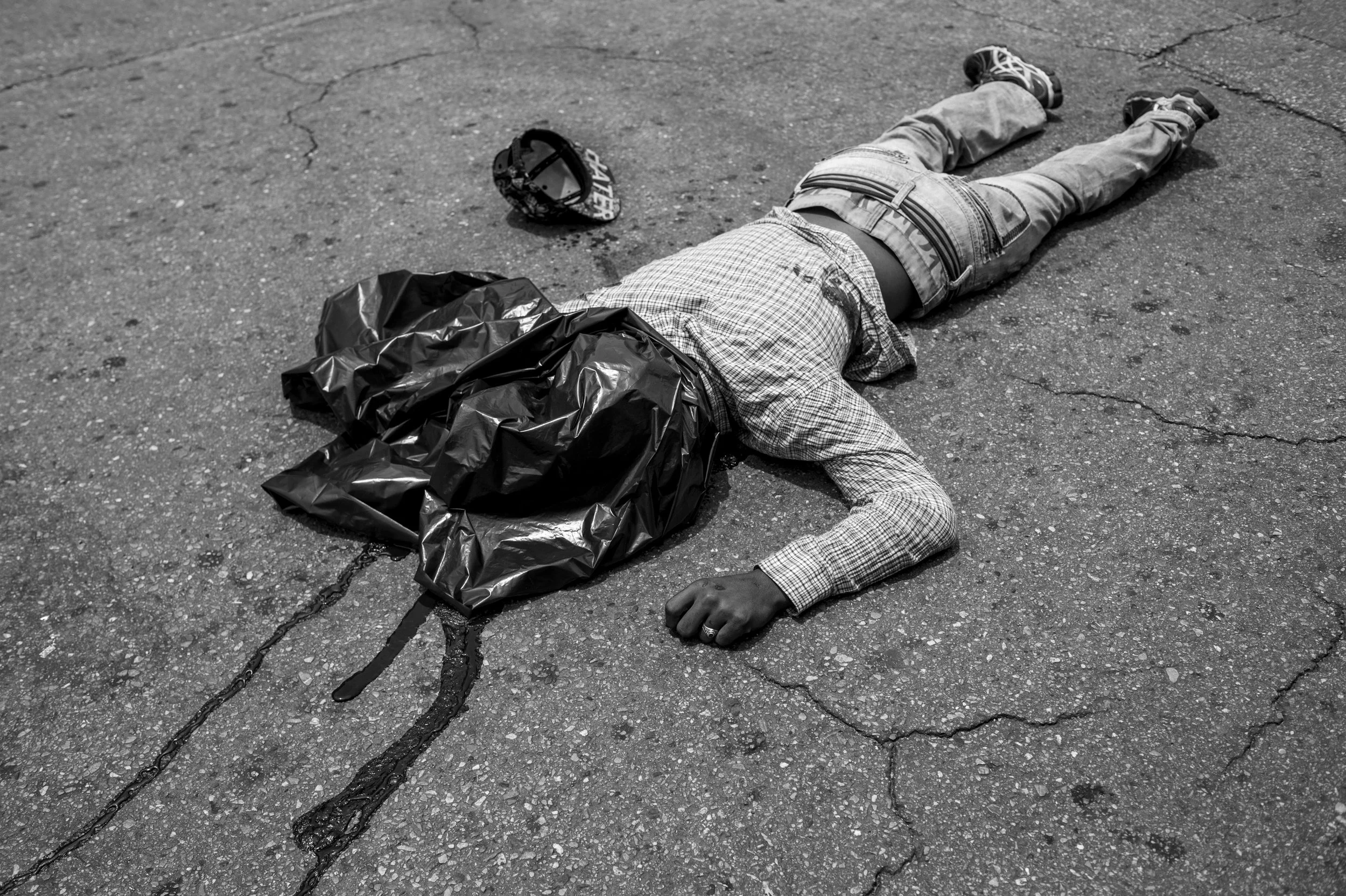
Hunger in Venezuela
Venezuela is in the midst of a severe economic crisis. The country, though one of the richest in natural resources, has been called the worst economy of 2016 by the International Monetary Fund, and its inflation rate could reach 700 percent by the end of the year.
Today, the biggest concern for Venezuelans is the food shortage, together with rampant crime and the lack of medicine.
Every day, thousands of people reach supermarkets or shops, sometimes as early as dawn, patiently waiting in long lines just to buy a few pieces of basic food items, such as rice or flour, at a lower price set by the government.
The alternative to "colas" (food lines in Spanish) can be found in expensive supermarkets, where only the wealthy can afford to shop. The others rely on "bachaqueros", or food smugglers who re-sell on the street subsidised goods at much higher prices.
In the slums of Caracas, the situation is difficult. Many families are unable to provide two to three meals a day for their children. Lunch often consists of a banana or a piece of bread.
As a result of this climate of uncertainty and helplessness, crime is rising fast in Venezuela, especially in Caracas, already ranked in 2015 as the most violent city in the world.
In the rest of the country, the food crisis is worse, and health workers have noted increased cases of malnutrition within the poorest segments of the population.

People line up for hours to buy basic products in front of a supermarket in La Candelaria district.
People line up for hours to buy basic products in front of a supermarket in La Candelaria district.
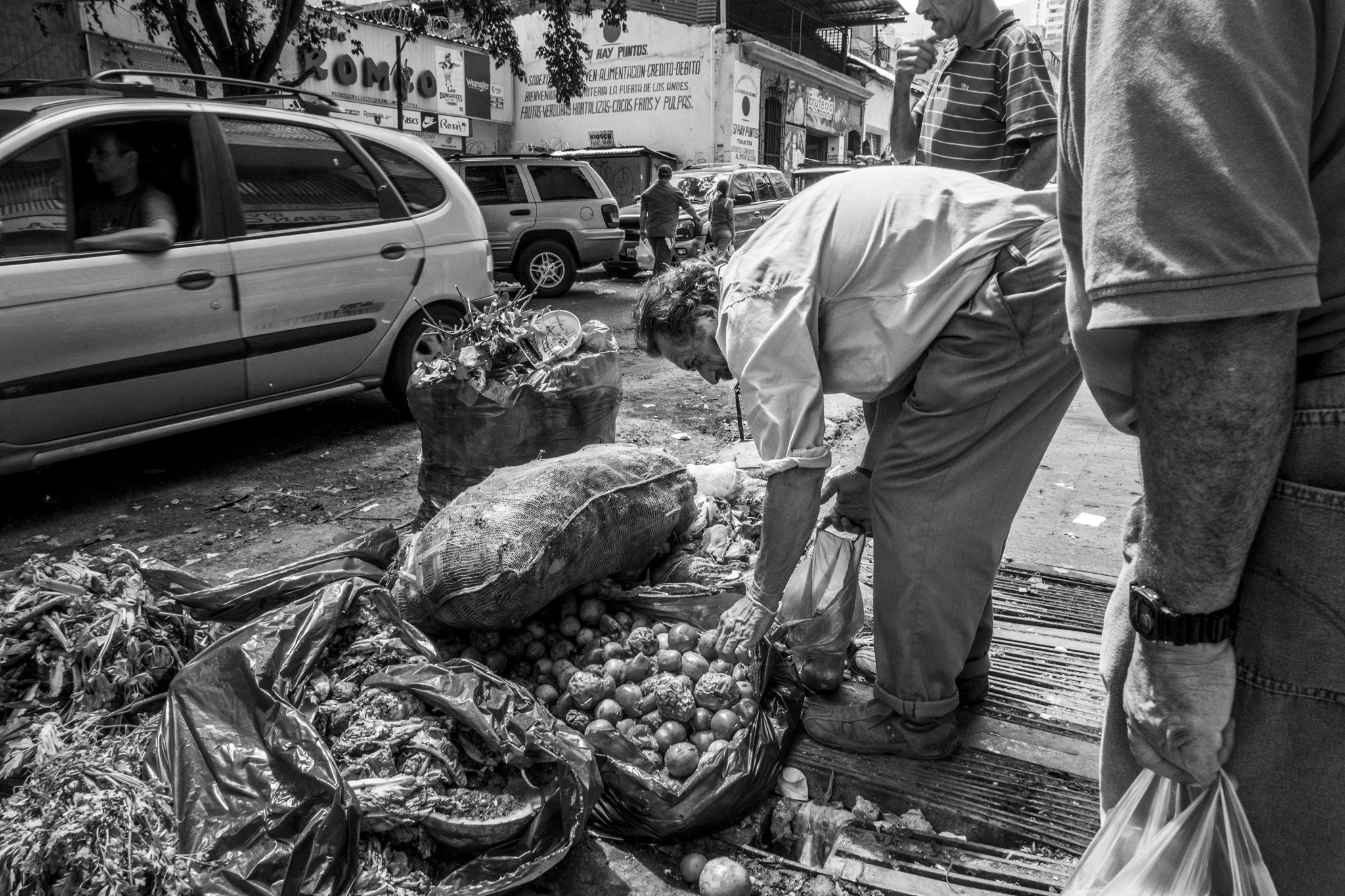
An old man picks up some tomatoes and fruit discarded at the end of the day by a green grocer. Inflation has a strong impact on food prices, and a bag of tomatoes can easily reach the equivalent to one day's minimum wage.
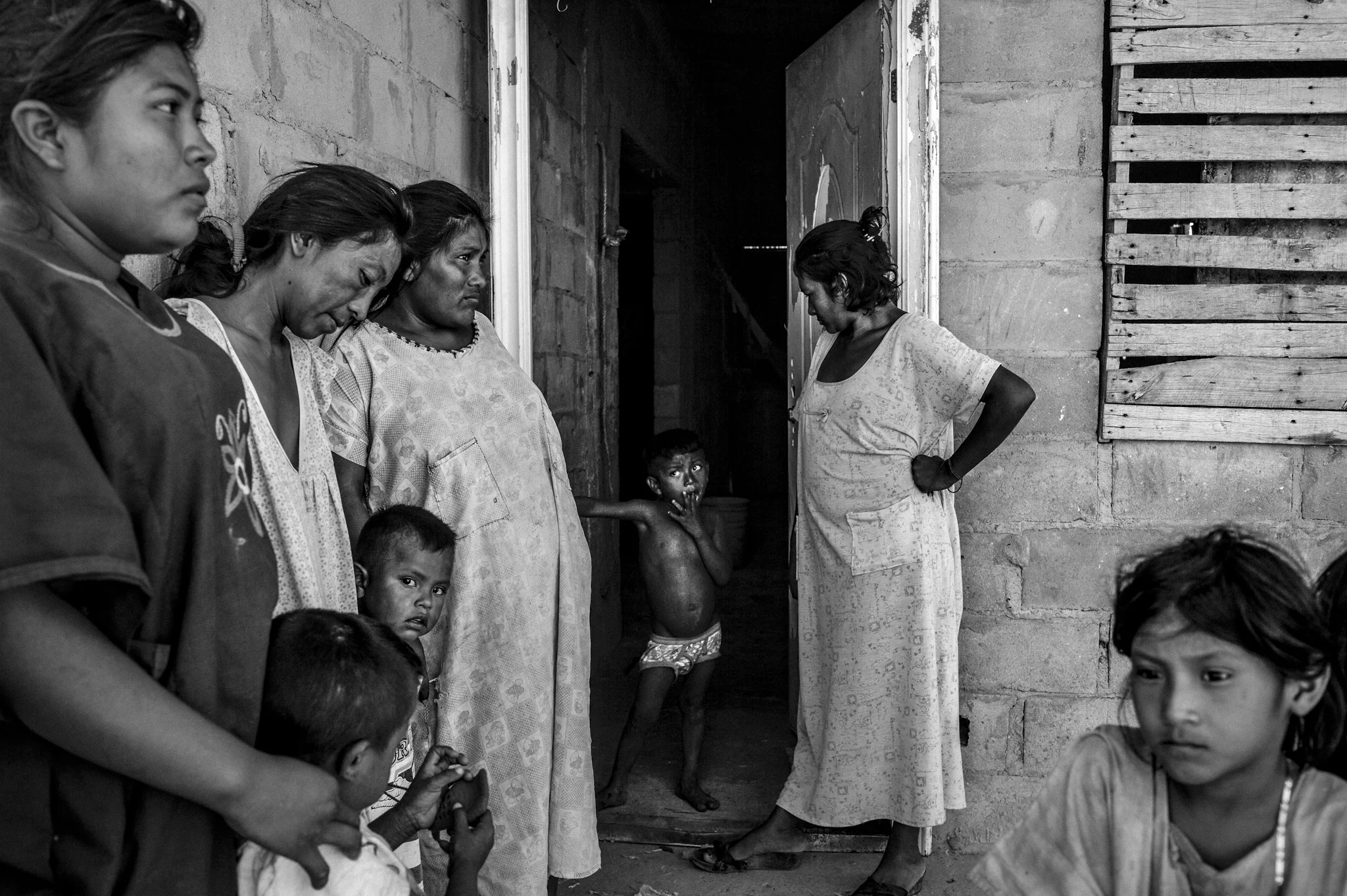
Olga, 27, center, looks at one of her children with obvious signs of denutrition.
Last month, she lost two of her five children because of malnutrition.
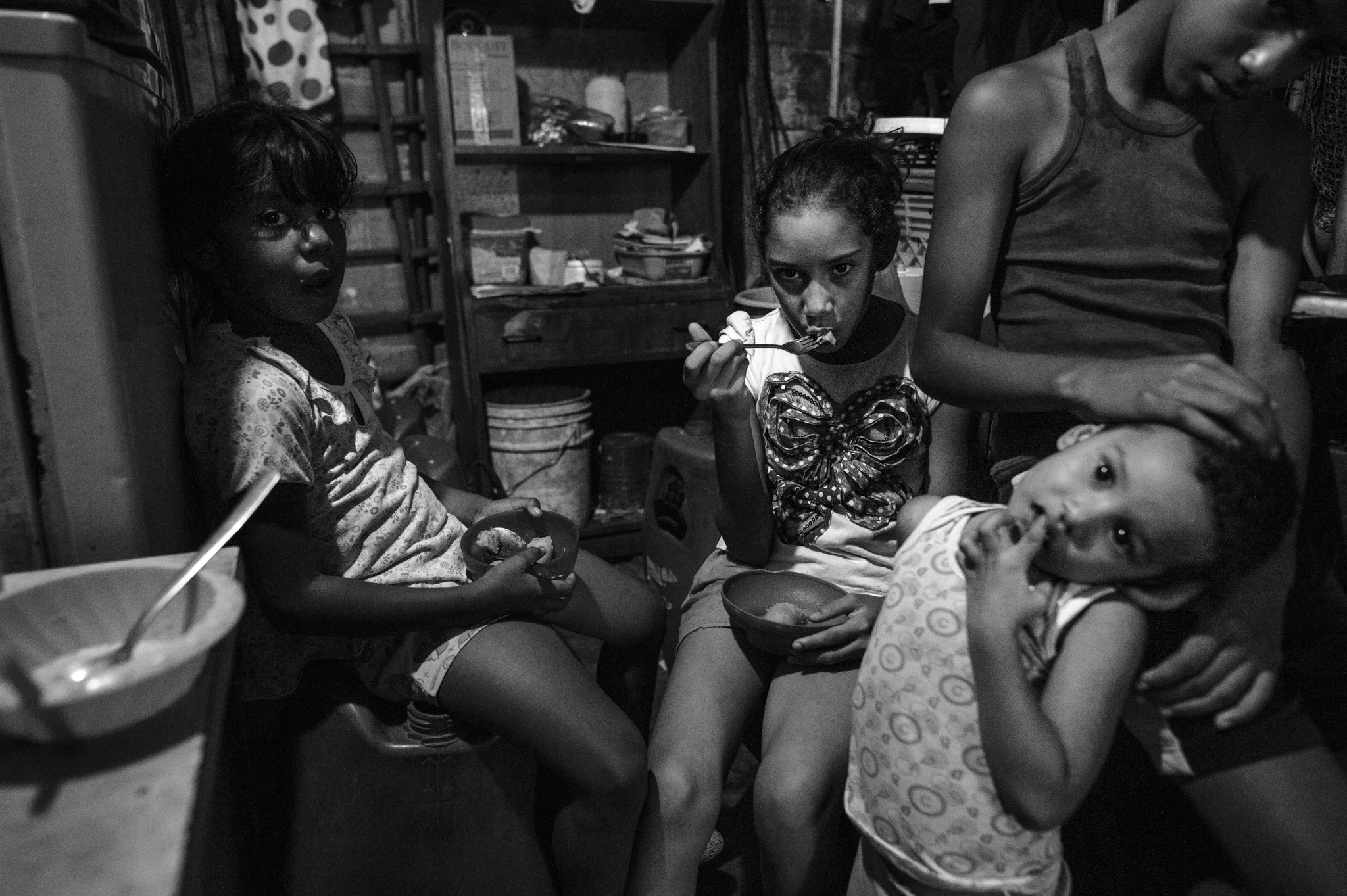
Four siblings eat boiled bananas in the kitchen of their shack in Petare.
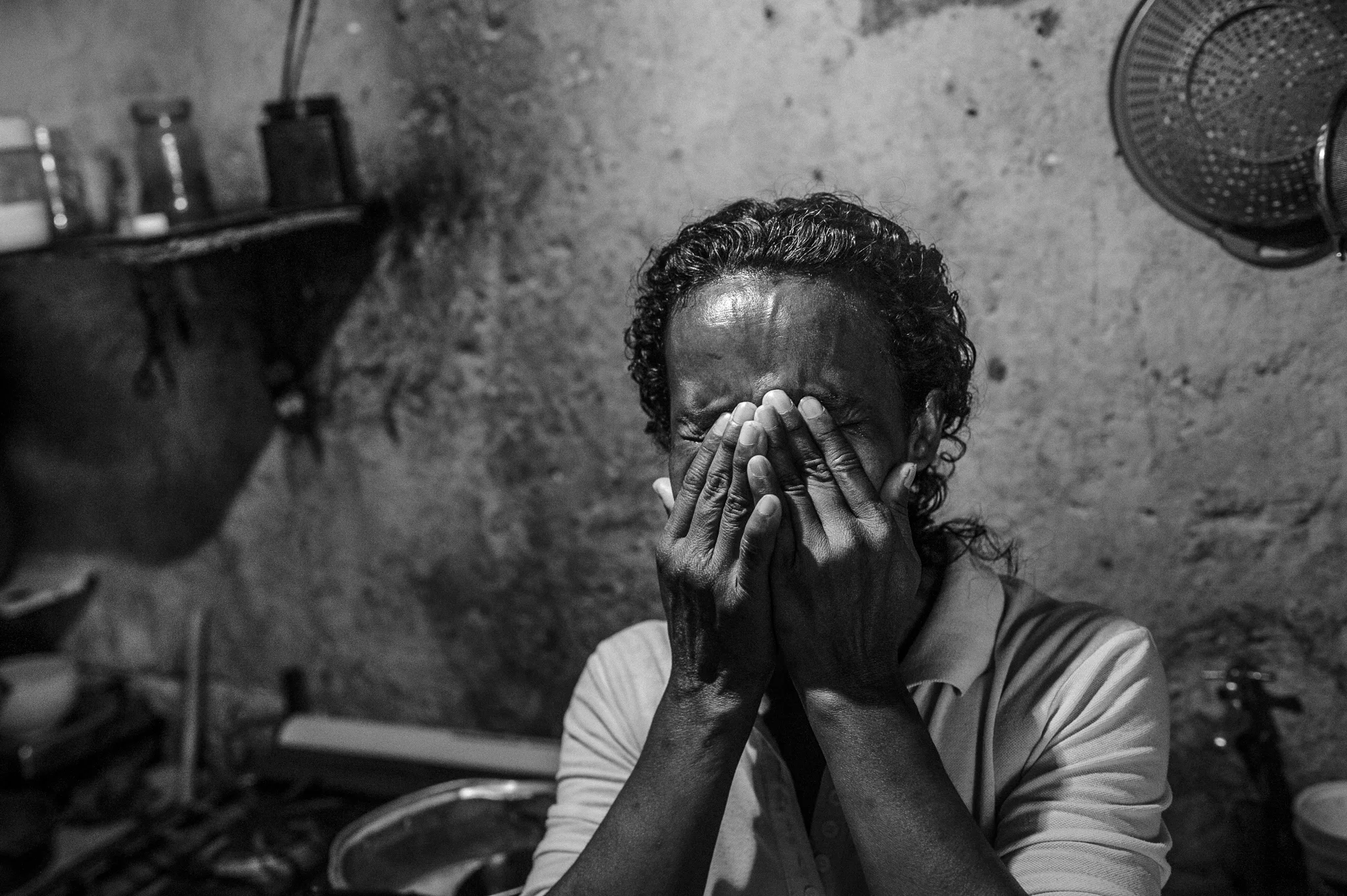
Paula, 48, bursts into tears in the kitchen of her shack in Petare, recalling how life in Venezuela has changed in a few years.

A man in a state of malnutrition lying on his bed in a rural area around Maracaibo.
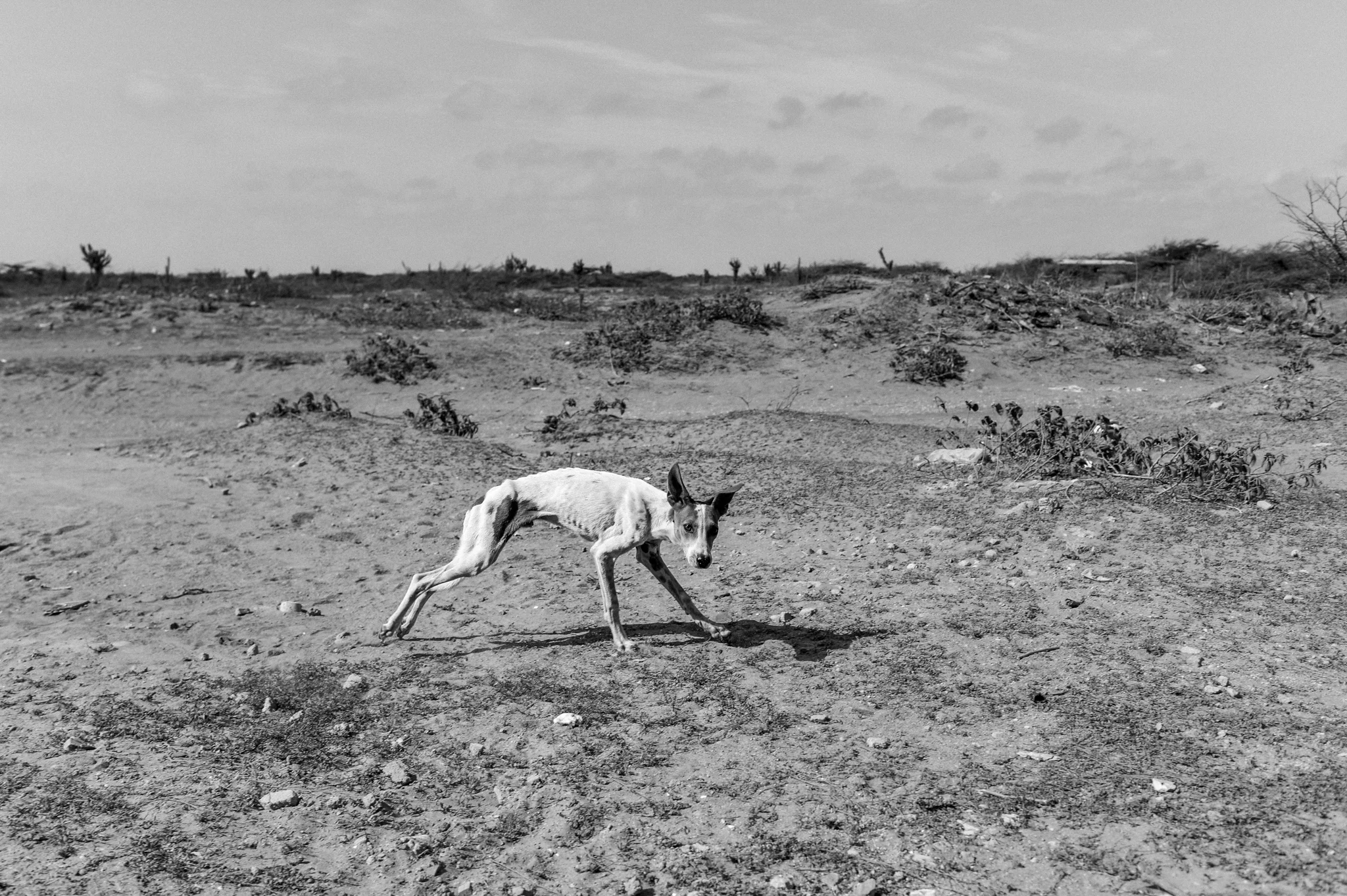
A starving dog runs in the backyard of his owner's house in Alta Guajira, Western Venezuela.
The family, who claims to be able to eat only once a day, has recently lost two children due to malnutrition.
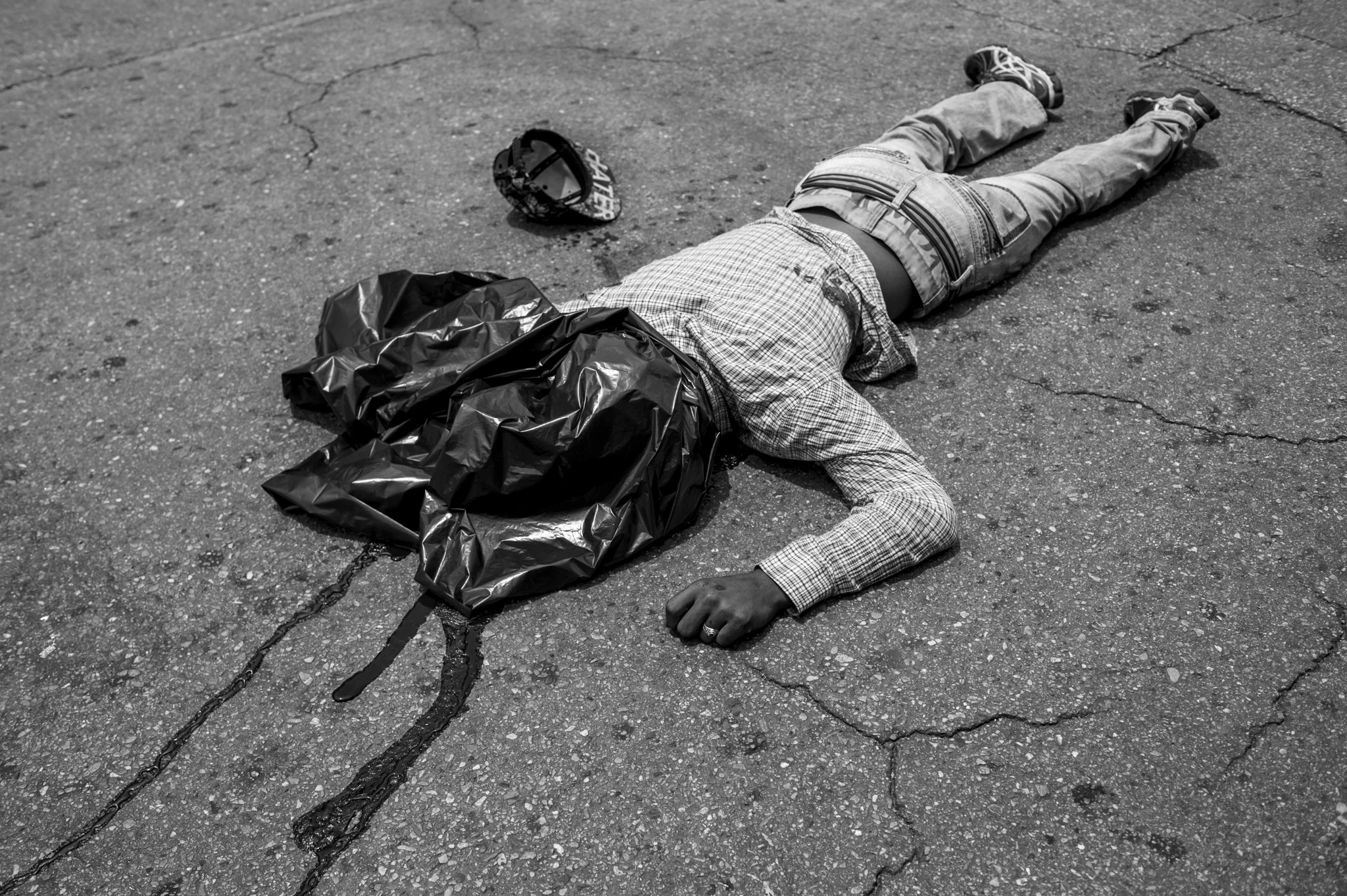
A young man lies dead in front of a supermarket where he allegedly just tried to rob a man, who reacted by shooting him in the stomach.

A man waits in line to buy some bread in the Chacao district.
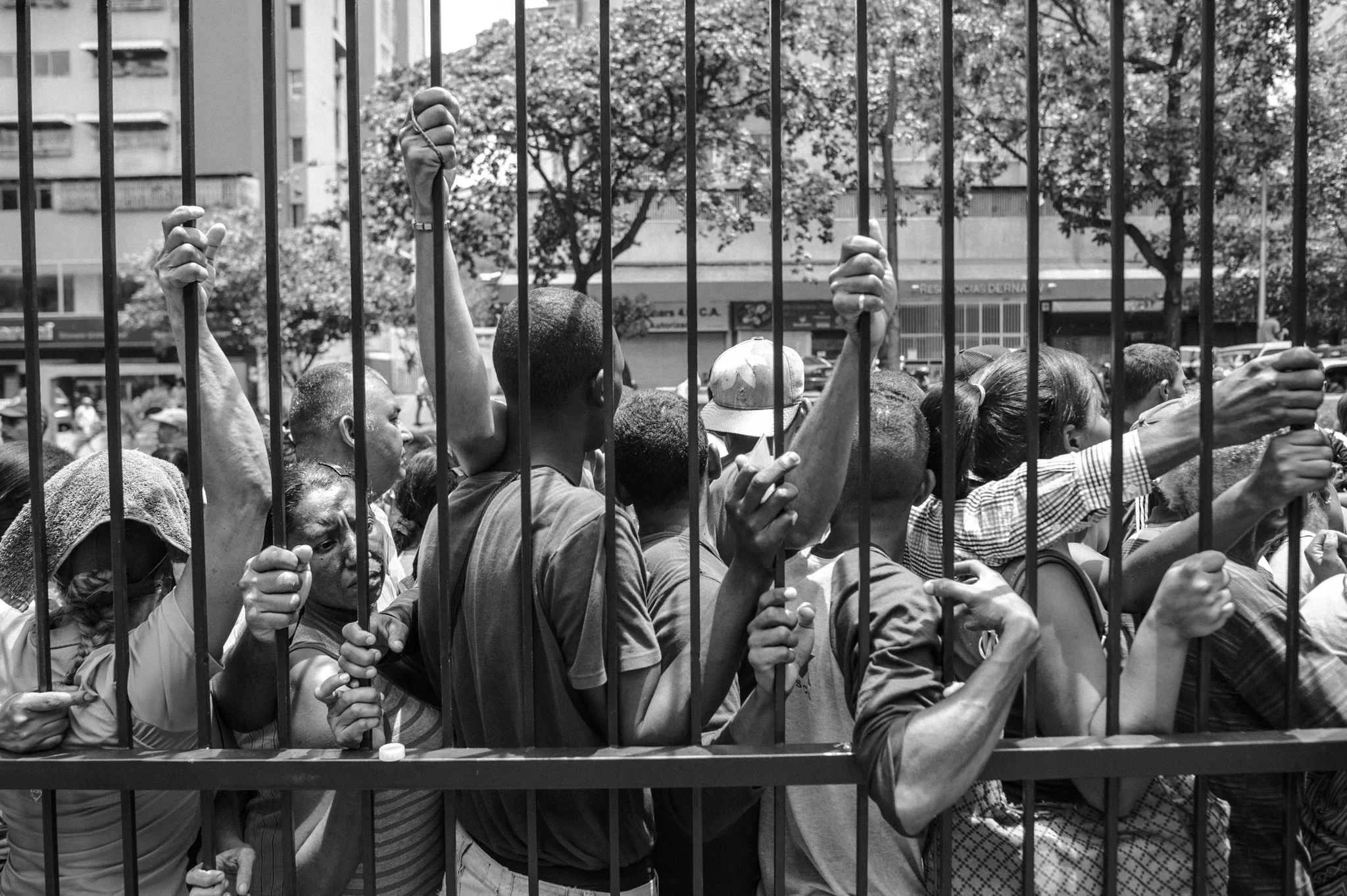
People line up under hot sun in order to buy basic products in front of a supermarket in La Urbina district.
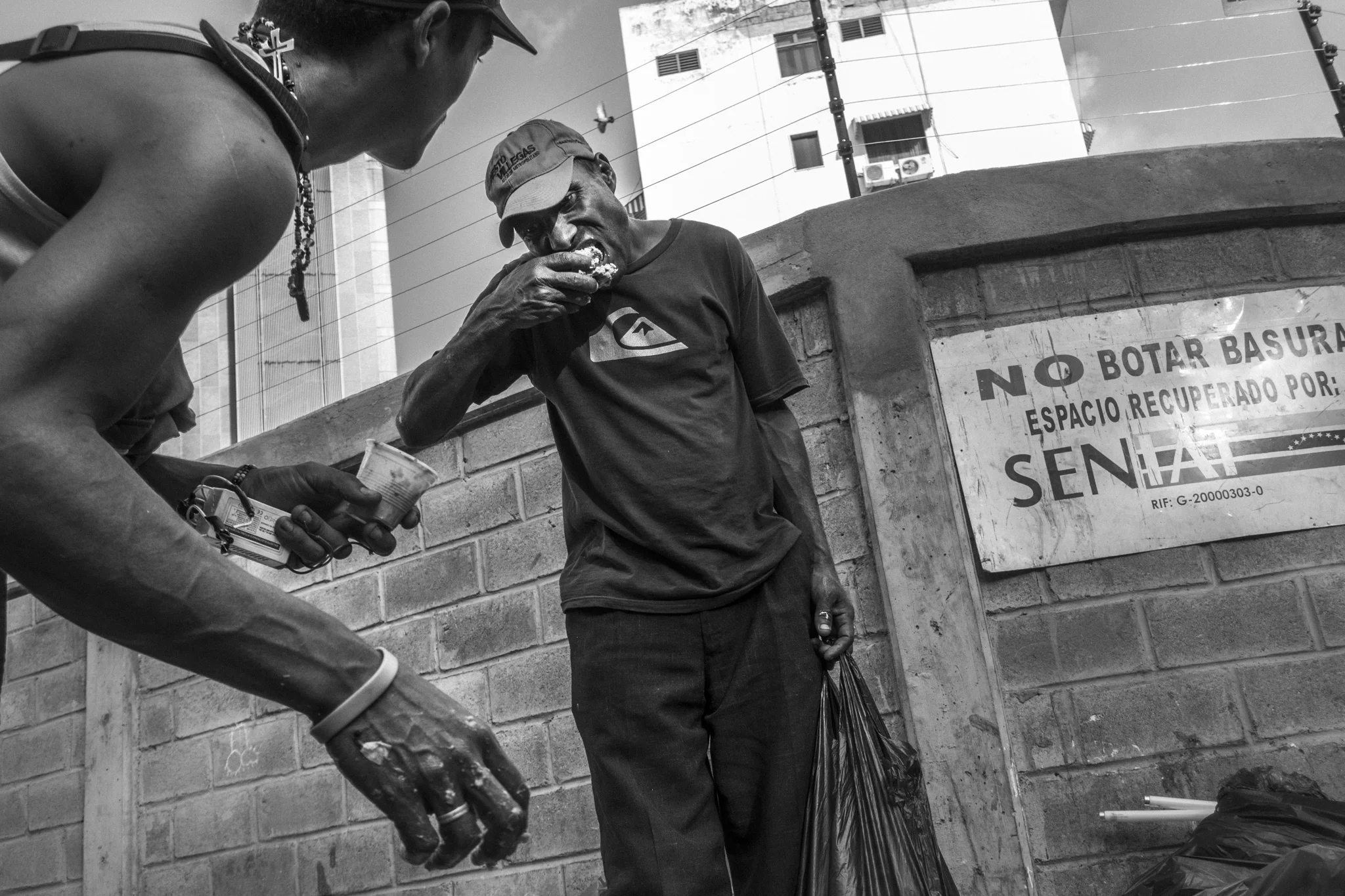
Two people eat the food they find amid the rubbish at a district full of restaurants in downtown Caracas.
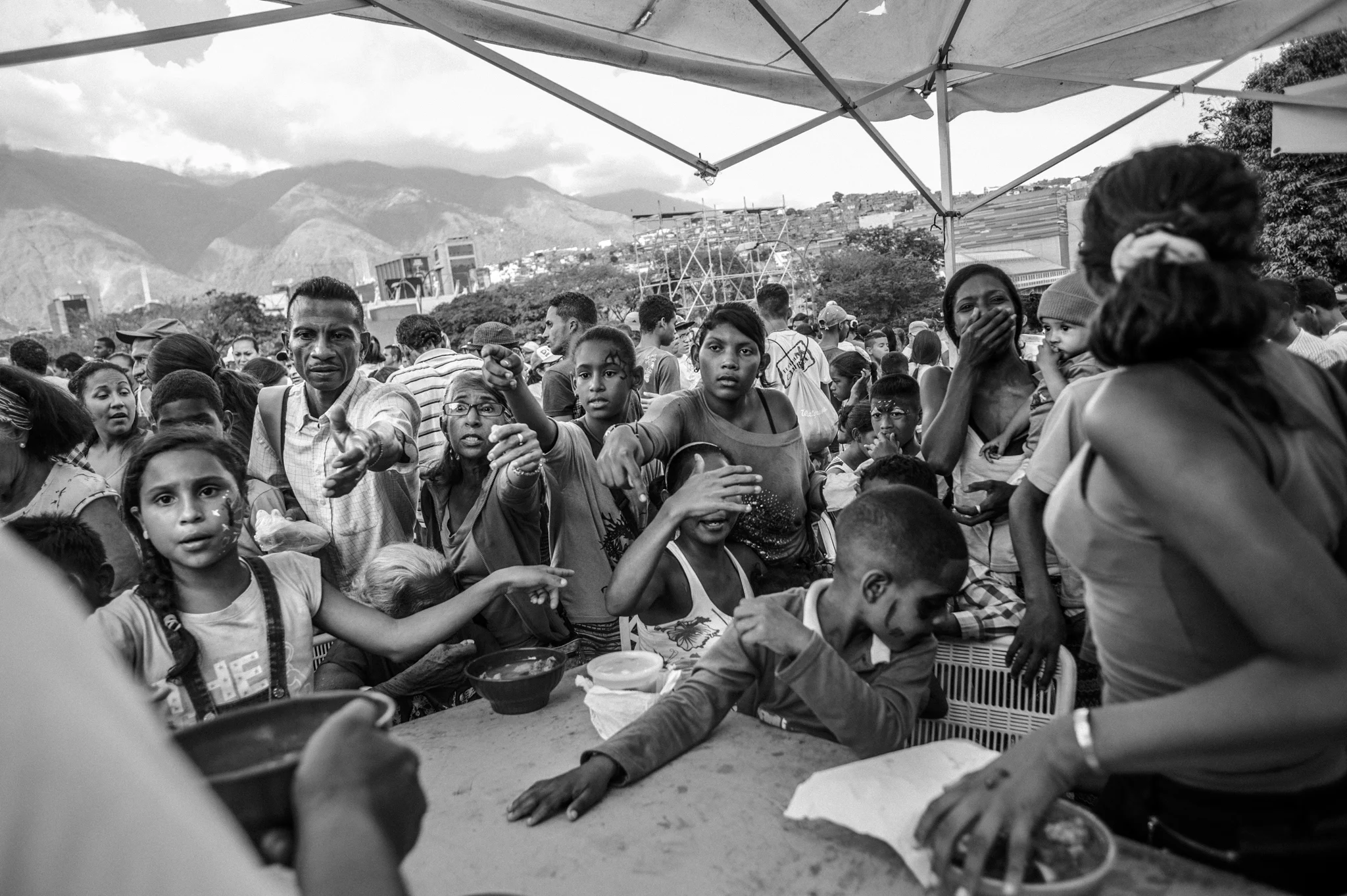
People awaiting to receive a free cup of soup, offered by the Evangelical Church in Petare, one of the largest slum in South America.

Jaqueline, 33, sits on her bed with the little Sinay, just four months old.
Because of poor nutrition, the mother has no breast milk and artificial substitutes are only available through food smugglers (bachaqueros) that sell a can of milk powder for $7 , more than one week's worth of the minimum salary wage.
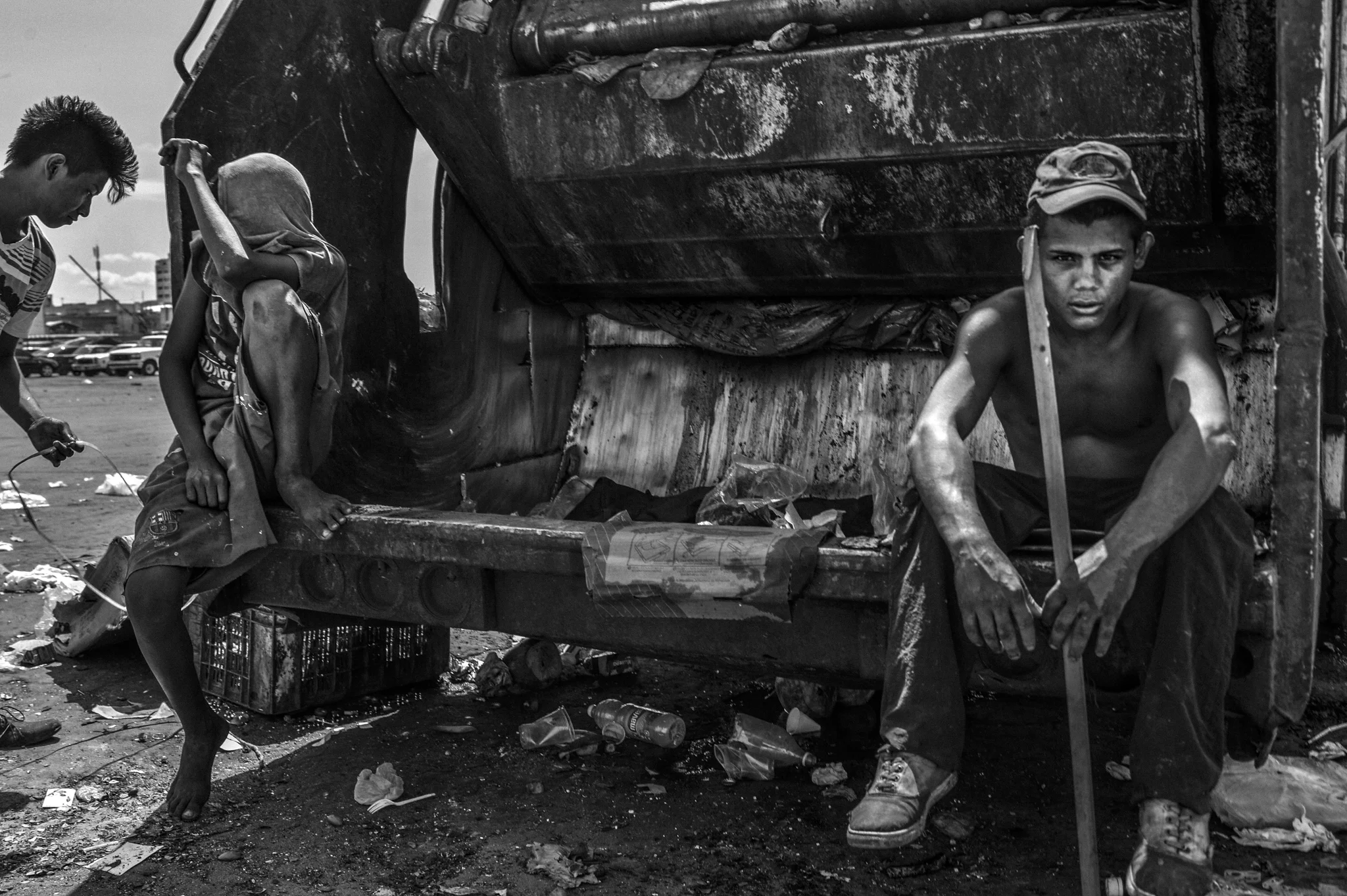
Young guys wait for waste truck coming from La Pulga's Maracaibo market, looking for something to eat.
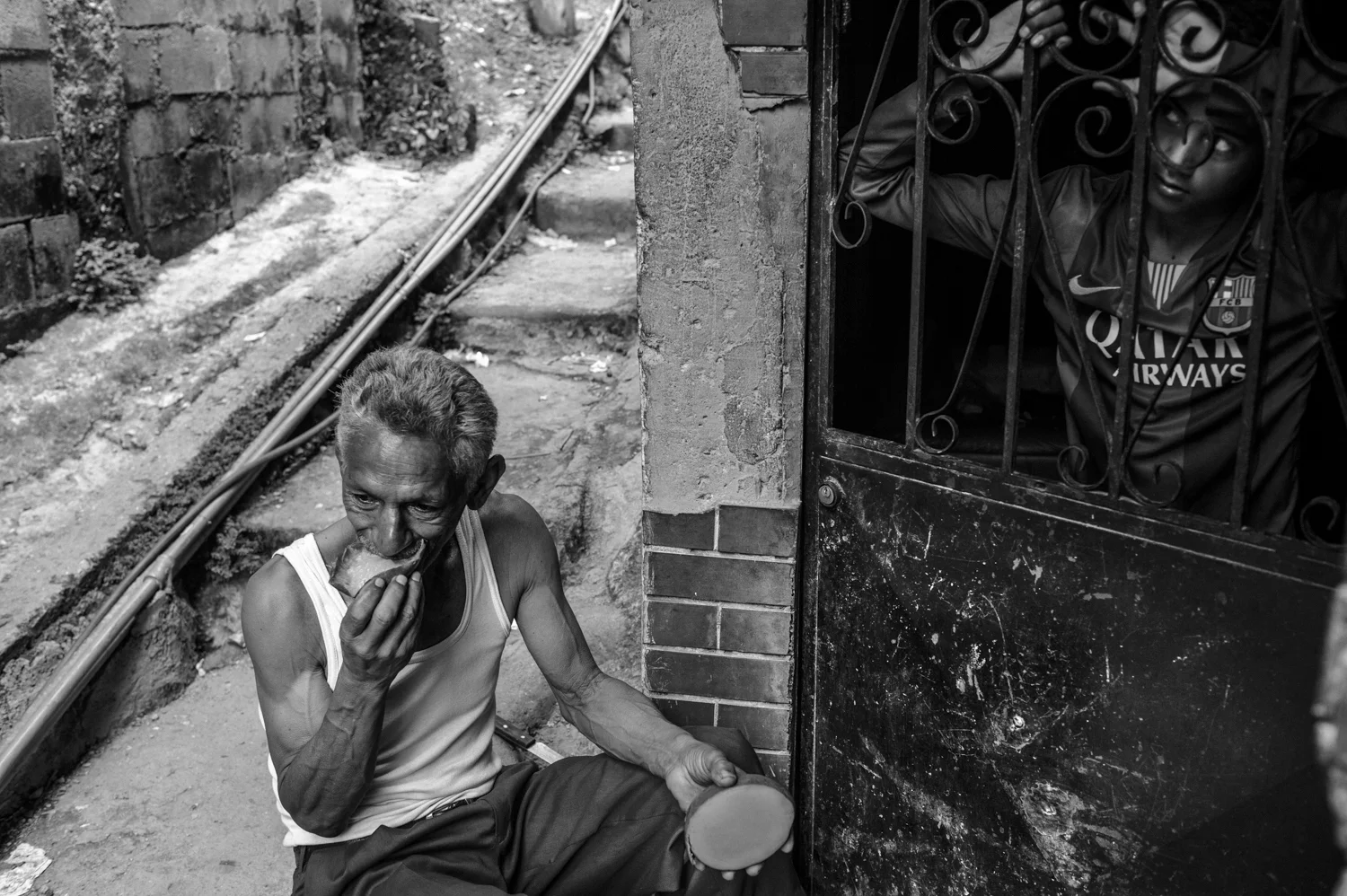
A man eats a mango for lunch in front of his shack in Petare, the largest slum in Caracas. Venezuela is facing a severe economic crisis and a large part of population has no access to essential food products at a reasonable price due to one of the highest inflation rates in the world.
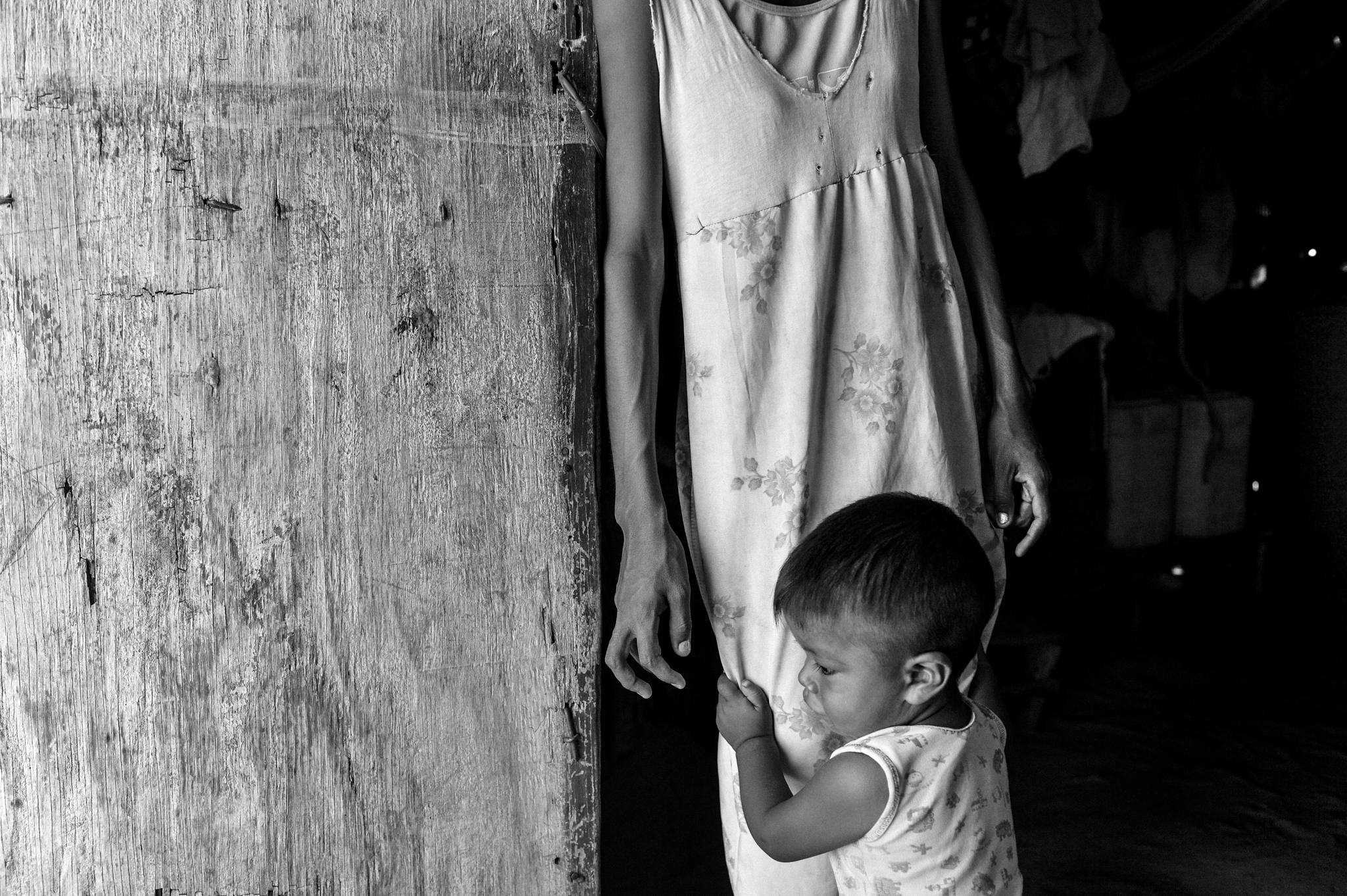
The little Josué David, 1 year old, tightens the dress of his mother Aura Rosa, 22 y.o.
The mother says she's not eating every day in order to feed him properly.
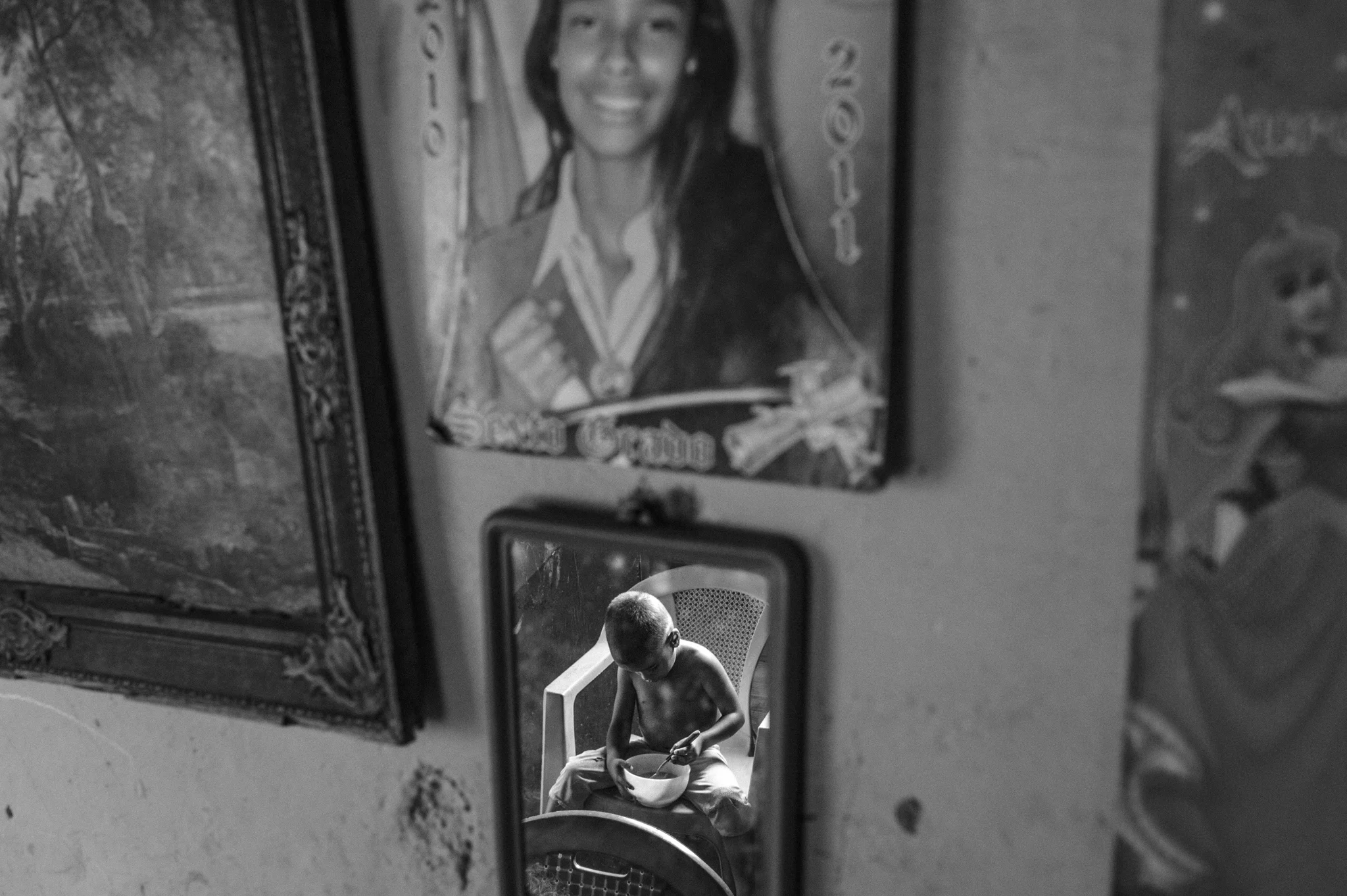
A child eats a meal offered by his neighbour in Caracas.

















Hunger in Venezuela (2016)
Venezuela is in the midst of a severe economic crisis. The country, though one of the richest in natural resources, has been called the worst economy of 2016 by the International Monetary Fund, and its inflation rate could reach 700 percent by the end of the year. Today, the biggest concern for Venezuelans is the food shortage, together with rampant crime and the lack of medicine. Every day, thousands of people reach supermarkets or shops, sometimes as early as dawn, patiently waiting in long lines just to buy a few pieces of basic food items, such as rice or flour, at a lower price set by the government. The alternative to "colas" (food lines in Spanish) can be found in expensive supermarkets, where only the wealthy can afford to shop. The others rely on "bachaqueros", or food smugglers who re-sell on the street subsidised goods at much higher prices. In the slums of Caracas, the situation is difficult. Many families are unable to provide two meals a day for their children. Lunch often consists of a banana or a piece of bread. As a result of this climate of uncertainty and helplessness, crime is rising fast, especially in Caracas, already ranked in 2015 as the most violent city in the world. In the rest of the country, the food crisis is worse, and health workers have noted increased cases of malnutrition within the poorest segments of the population.
Published by CNN , Newsweek Japan, Il Reportage.